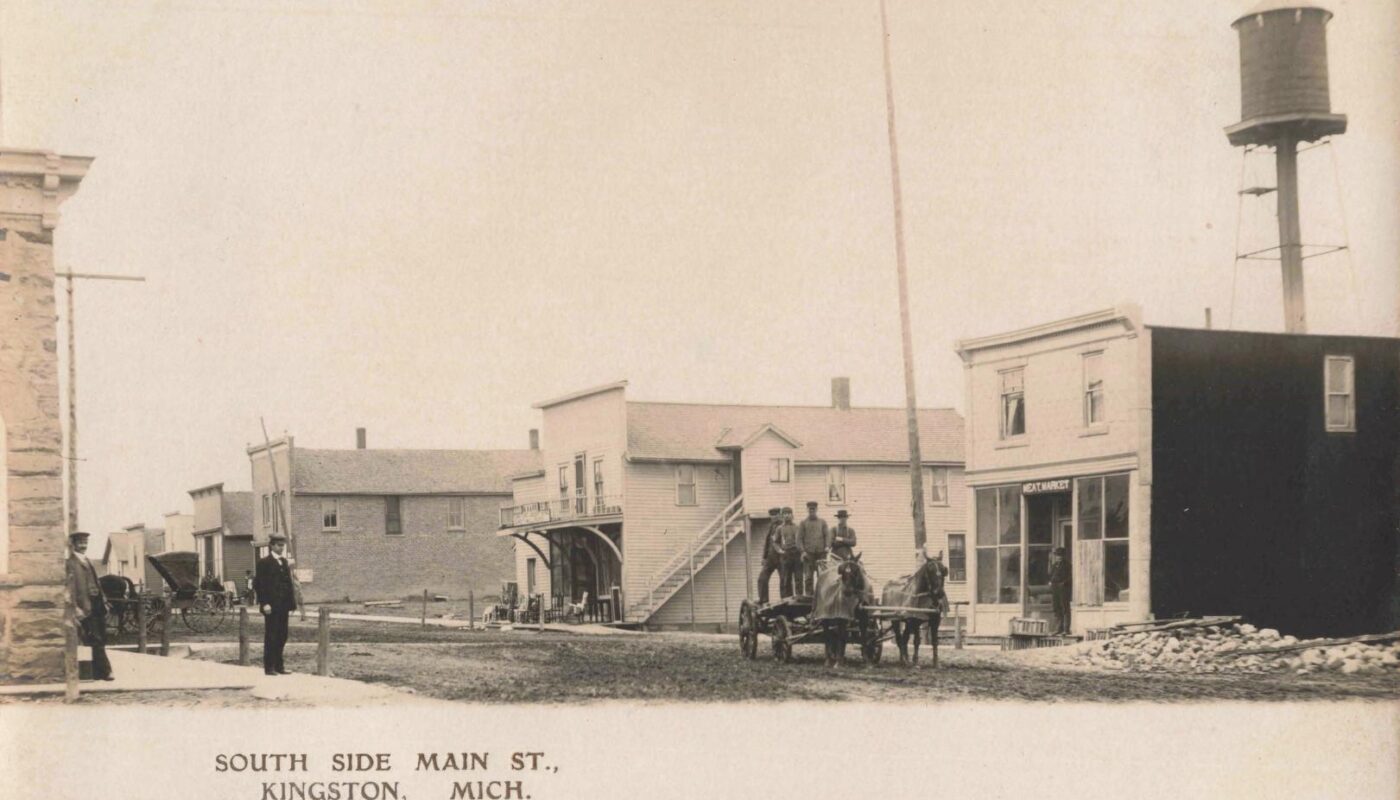The early 1900s in Kingston, Michigan, reflect the essence of rural American life. This quiet village in Tuscola County provides a fascinating glimpse into Kingston Michigan history and how community, agriculture, and transportation defined small-town living.
Life Centered on Main Street
Main Street was the lifeblood of Kingston. Photographs capture its dirt roads busy with horse-drawn buggies and carriages—vehicles of commerce and daily travel. Shops lined the street, including bakeries, general stores, and even the notable Berman Department Store. This store was integral, offering a wide range of goods from apparel to everyday supplies, symbolizing Kingston’s commercial vitality.
The Railway Connection
The town’s Pontiac, Oxford & Northern railway depot was more than just a transportation hub; it was a gateway connecting Kingston residents to distant cities and towns. People crowded around waiting trains, exchanging news, goods, and greetings. The depot was a place of excitement and emotional farewells, deeply woven into the social fabric of Kingston.
Prominent Landmarks
Two structures stood out in Kingston’s early days: the Hotel & Bank building and the Berman Department Store. The Hotel & Bank provided crucial services—accommodation for travelers and financial transactions for locals. Its robust stone construction offered a sense of security and permanence, demonstrating Kingston’s commitment to growth.
Similarly, Berman’s Department Store, a grand brick structure, represented prosperity and community pride. It was not just a store but a communal gathering point, where locals came together to socialize, shop, and participate in town life.
A Community Built on Agriculture
Agriculture was central to Tuscola County and to Kingston’s economy. Historical photographs often show advertisements for farming implements prominently displayed, signaling the importance of farming to the local economy. Farming dictated daily rhythms, seasonal cycles, and the community’s overall prosperity.
Everyday People, Extraordinary Times
Images of postal workers diligently sorting mail, residents engaging in daily errands, and children playing along the streets provide a heartfelt glimpse into everyday lives. These photographs document more than buildings and streets; they capture the human essence of a tight-knit community where everyone had a role to play.
Seasons and Society
One compelling photograph illustrates winter in Kingston. Snow-covered streets filled with sleighs depict a challenging yet picturesque lifestyle. Seasonal shifts dictated how people traveled, worked, and socialized, emphasizing adaptability as key to their survival.
A Bird’s-eye Perspective
Panoramic views of Kingston highlight a carefully laid-out town surrounded by expansive farmlands. These vistas showcase the harmonious balance between community development and the agricultural landscape, essential for sustaining Kingston’s rural lifestyle.
Kingston Michigan History Offers A Lasting Legacy
Although Kingston has changed significantly since these photographs were taken, the spirit of community depicted still resonates. The images offer a tangible connection to a past era, reminding viewers of the foundational values and experiences that shaped modern-day Kingston.
Through these remarkable snapshots, Kingston, Michigan remains an evocative representation of early 20th-century rural America—a community bound by simplicity, agriculture, and enduring camaraderie.




